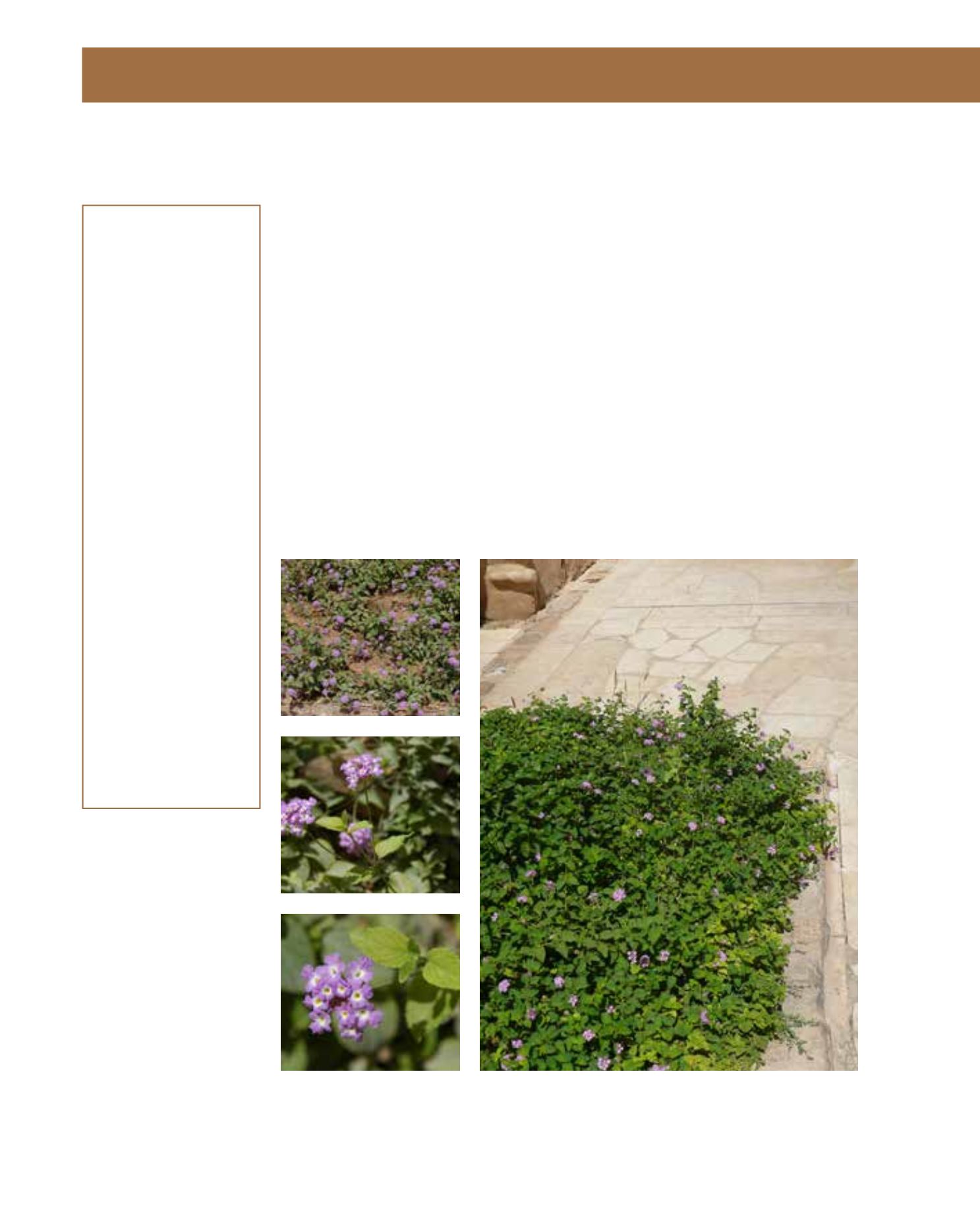

GENERAL
Origin
:
Mediterranean,
sub-tropical,
tropical
Vigour
:
fairly fast
growing
Humidity
:
semi-arid, semi-
humid, very
humid, extremely
humid
Propagation :
cuttings, sowing
and pricking out
Maintenance :
high
CONDITIONS
Urban climate :
resistant
Dessication :
vulnerable
Stagnant water :
vulnerable
Irrigation
:
high
Salinity/ppm :
moderate (2500
ppm)
Hardiness
:
0°C
SHAPE
Type
:
sub-shrub, shrub
Height
:
0.2 m-0.3 m
Spread
:
1.2 m-2 m
Foliage
:
semi-evergreen
FLOWER
Colour
:
lilac, light blue,
violet
Size
:
2 cm - 3 cm
Period
:
June - September
Smell
:
malodorous
FRUIT
Type of fruit :
berry
Fruit size
:
0.4 cm
Toxicity
:
poisonous
The Trailing Lantana is native to tropical South America, Uruguay and Brazil, and is a vigorous,
spreading sub-shrub or shrub growing only 30 cm high, but spreading up to 2 metres. It has
been quite successful in Arriyadh. Semi-evergreen foliage is dark green and the profuse flowers
on many heads are a bright violet-blue, covering the plant almost completely throughout the year
and giving a bold splash of colour, especially in winter. This Lantana likes light, well-drained
soil with regular irrigation and has medium tolerance to salinity. It develops well in sunny loca-
tions, but partial shade is also possible. Slightly sensitive to frost, it will recover again in spring.
Lantana montevidensis can be propagated by seeds and with cuttings. Like other Lantanas, the
plant is poisonous to livestock. Trailing Lantana is impressive as a ground cover and in steppe
or rock gardens. It can be used for the tops of walls, because it will cascade down the wall and
cover it with its flowers. Urban areas, public open space, park plantings and pedestrian precincts
are preferred areas for using this Lantana as ground cover. Containers can be planted with it too.
Relatively high maintenance is necessary; the plants have the disadvantage of dying back at their
centre, so that mass planting has to be renewed every so often. Trimming of the tops once a year
will encourage dense growth and rich flowering. Plants should be fertilised up to twice a year and
may need to be sprayed against whiteflies.
183
Lantana montevidensis,
Verbenaceae
Trailing Lantana
















